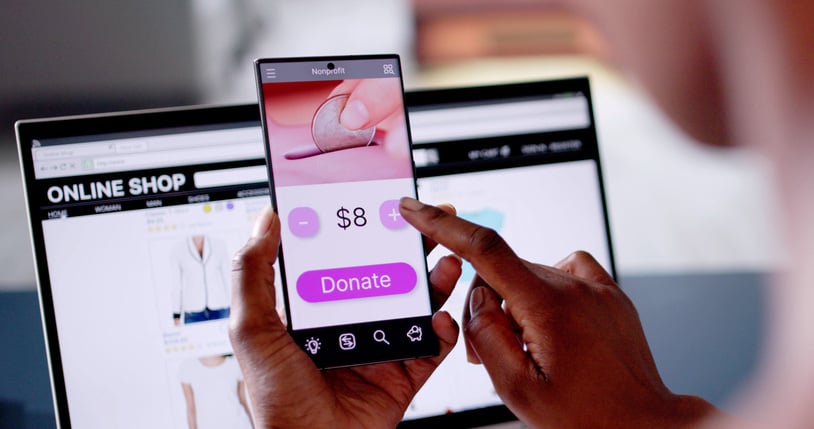Introduction
In today’s rapidly evolving nonprofit landscape, understanding the charitable donation trends and behaviors of Millennials and Generation Z is critical for small to medium-sized nonprofits. As these generations continue to grow in influence, their unique approaches to giving are reshaping how organizations engage with donors. To maximize your fundraising success, it’s essential to tailor your strategies to meet the preferences of these digitally savvy, socially conscious groups.

Millennial Donor Trends and Statistics
Millennials, born between 1981 and 1996, are now in their late 20s to early 40s and represent a significant portion of the donor base for many nonprofits. The Millennial Impact Report reveals that 72% of Millennials donate to charity, with an average annual contribution of around $481. This generation is particularly drawn to causes related to children and youth, health, education, and environmental sustainability. Notably, 60% of Millennials believe in the importance of supporting their local communities, making them a vital demographic for community-focused organizations.
Digital engagement is key when it comes to attracting Millennial donors. According to the Millennial Impact Report, 84% of Millennials prefer to give through online platforms. This preference reflects their comfort with digital tools and their desire for convenience in charitable giving. Additionally, Millennials are not just financial supporters; they are also actively engaged in volunteering. 70% of Millennials volunteer their time, indicating a strong preference for hands-on involvement in causes they care about.
To effectively engage Millennials, nonprofits should prioritize online fundraising and create opportunities for volunteer engagement. Leveraging digital platforms and offering clear, transparent communication about how donations are used can help build trust and foster long-term relationships with this valuable donor segment.

Generation Z Donor Trends and Statistics
Gen Z, born between 1997 and 2012, is beginning to make its mark in the philanthropic world, despite being at the early stages of their careers. The Global Trends in Giving Report notes that 32% of Gen Z donate their own money, which is significant considering their limited earning potential at this stage. Gen Z is highly motivated by social justice and inclusivity, with a strong focus on causes related to racial equity, LGBTQ+ rights, mental health, and climate change. 85% of Gen Z consider a company’s commitment to social causes when deciding where to work, highlighting the importance of aligning your nonprofit’s values with those of this generation.
Mobile-friendly donation platforms are crucial for engaging Gen Z donors. This generation responds well to short-form video content, such as TikTok and Instagram Reels, and is influenced by social media campaigns driven by authenticity and transparency. Gen Z also values activism and is more likely to participate in volunteer opportunities and community-based initiatives, often using social media as a platform for advocacy.
To capture the attention of Gen Z, nonprofits should focus on mobile-first fundraising strategies, utilize video content to tell compelling stories, and emphasize transparency in all communications. Engaging this generation through social media and influencer-driven campaigns can significantly enhance your nonprofit’s reach and impact.

Strategies for Engaging Millennials and Gen Z
Both Millennials and Gen Z are digital natives who expect seamless online experiences and authentic engagement. Here are some strategies to help your nonprofit effectively connect with these generations:
- Leverage Technology: Implement mobile-friendly and interactive platforms that make donating easy and engaging. Consider incorporating gamification elements to make giving fun.
- Harness Social Media: Develop campaigns that leverage the power of social media. Use platforms like Instagram, TikTok, and Twitter to reach and engage younger audiences.
- Focus on Storytelling: Share compelling stories about the impact of donations. Utilize video content to create an emotional connection with your audience.
- Promote Transparency: Clearly communicate how donations are used and the impact they make. Transparency builds trust, especially among younger donors.
- Encourage Peer-to-Peer Fundraising: Enable supporters to fundraise on your behalf through social media and online platforms, tapping into their networks and amplifying your reach.
- Engage Through Events: Host events that resonate with these generations, such as virtual concerts, webinars on relevant issues, or community volunteer days.
- Emphasize Values: Align your campaigns with the values and priorities of Millennials and Gen Z. Highlight your commitment to social justice, environmental sustainability, and inclusivity.




Conclusion
As Millennials and Gen Z continue to transform the world of philanthropy with their unique perspectives and approaches to giving, nonprofits must adapt their strategies to engage these generations effectively. One way to do this is by utilizing innovative tools like OneEach Mindful Giving, an in-kind donation platform that appeals to the values of both Millennials and Generation Z. This platform allows donors to contribute goods directly to your nonprofit, offering a more tangible and impactful way to support your cause. By using OneEach Mindful Giving, you can build stronger connections with younger donors and enhance their overall giving experience.
Schedule a demo today and discover how this powerful platform can help your organization connect with the next generation of donors.
